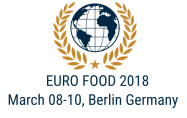
Luc Djousse
Brigham and Women’s Hospital, USA
Title: Association of dietary epicatechin and catechin with incidence of heart failure: The physicians’ health study
Biography
Biography: Luc Djousse
Abstract
Background: While limited studies have reported potential benefits of food items rich in polyphenols such as cacao, chocolate,red wine, coffee, and tea on risk factors for heart failure (HF) including blood pressure, coronary artery disease, and diabetes, no previous study has examined the association of dietary epicatechin/catechin with HF risk. Objective: To test the hypothesis that dietary epicatechin/catechin is inversely associated with the incidence of HF in the physicians’ health study. Method: Prospective study of 20,083 men who participated in completed randomized trials of aspirin, beta-carotene, and vitamins. Dietary flavonoids were assessed using a self-reported food frequency questionnaire and nutrient databases from Harvard University. Incident HF was reported annually using mail-in questionnaires and validated in a subsample via review of medical records. We used Cox proportional hazard model to estimate hazard ratios and restricted cubic spline to assess the shape of the association. Results: The mean age was 66.7±9.3 years at the time of dietary assessment (1999-2001) and median dietary epicatechin/catechin was 13.7 mg/d (25th and 75th percentile: 19.8 and 9.5). During a mean follow up of 9.2 years, 867 new cases of HF occurred. From the lowest to the highest quintile of dietary epicatechin/catechin, hazard ratios (95% CI) for HF were 1.0 (ref), 0.86 (0.70-1.07), 0.92 (0.75-1.13), 0.96 (0.78-1.18), and 0.75 (0.60-0.94) controlling for age, body mass index, smoking, alcohol intake, exercise, prevalence of diabetes, atrial fibrillation, hypertension, and coronary artery disease (p for linear trend 0.034). Using restricted cubic spline, there was evidence for linear inverse relation between dietary epicatechin/catechin and incident F (p non-linearity 0.85; p for linearity 0.045), Conclusion: In this cohort of male professionals, higher consumption of epicatechin/catechin was associated with a lower risk of HF.

